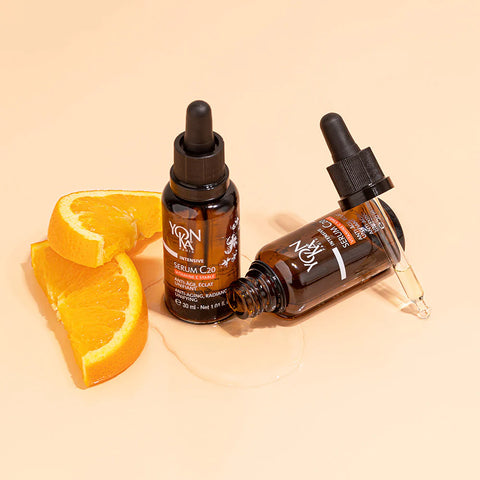The Ultimate Guide to Anti-Aging Skincare Ingredients
Written by: Lydia Bell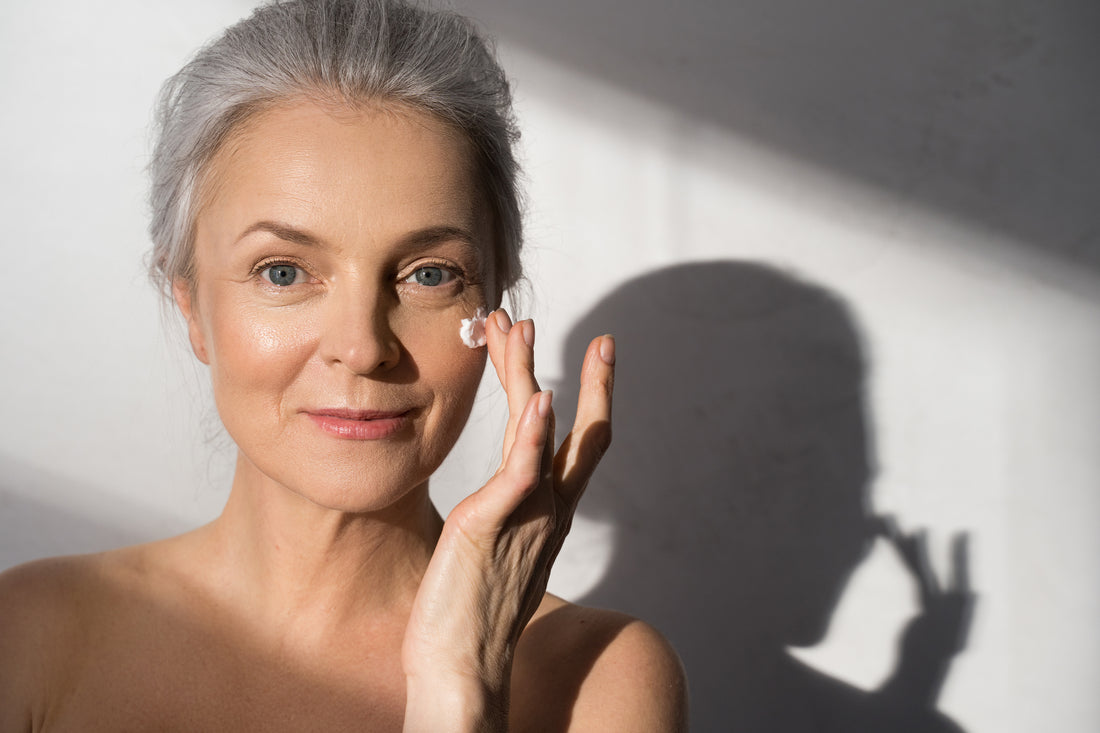
In the ongoing quest for keeping our skin young and healthy, understanding the causes of skin aging is key. Factors like genetics, environmental influences, and lifestyle choices can all play a role in the aging process. However, with the right knowledge and consistent use of active skincare ingredients, it's very possible to slow down the signs of aging. In this article, we delve into the science behind skin aging, exploring both intrinsic and extrinsic factors, and explain the benefits of active skincare ingredients that have shown remarkable efficacy in combating skin aging. With regular use in your skincare routine, these ingredients can spark a remarkable transformation in the texture and appearance of your skin.
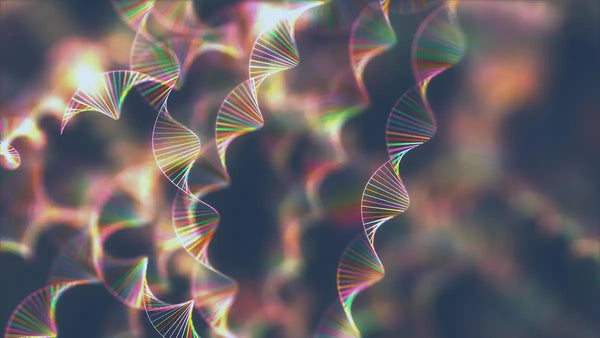
Intrinsic Aging
Intrinsic aging refers to the body’s own natural and inevitable aging process. Genetically predetermined factors, such as our unique genetic code, play a main role in intrinsic aging. Understanding intrinsic aging provides insights into how our bodies naturally evolve over time, forming the basis for effective skincare strategies tailored to combat this process. Here are some common biological factors present in intrinsic aging:
Hormones - Hormones act as messengers within our bodies, influencing the texture, elasticity, and overall appearance of our skin. When hormone production slows, such as the decline in estrogen that many women experience due to menopause, effects like dryness, loss of firmness, rashes, and dullness can be visible in the skin.
Collagen Production - A key player in intrinsic aging is the gradual decline in collagen production, a structural protein crucial for skin firmness and resilience. As collagen levels diminish with age, the skin experiences a reduction in suppleness, leading to the formation of fine lines, wrinkles, and a gradual loss of its youthful vibrancy.
Genetics & Ethnicity - Genetic factors, inherited from our parents, determine the baseline characteristics of our skin, such as its elasticity, collagen production, and susceptibility to certain skin conditions. Additionally, different ethnicities exhibit distinct skin characteristics and responses to aging.

Extrinsic Aging
Extrinsic aging refers to aging processes caused by external factors such as lifestyle, stress, and health habits. They are triggered by events we can usually actively manage. Recognizing the impact of extrinsic factors empowers individuals to make informed choices, adopt protective measures, and engage in proactive skincare practices slow down aging and maintain skin vitality.
Sun Exposure - A primary contributor to extrinsic aging, sun exposure exposes the skin to harmful ultraviolet (UV) rays, leading to the breakdown of structural proteins in the skin, accelerating wrinkling, dryness, and aging. The sun is the number one preventable external cause of aging!
Stress & Environment – Encompassing external sources of stress, pollution, unsafe living environments, and harsh weather conditions, environmental stress can also accelerate skin aging by promoting oxidative stress and inflammation.
Lifestyle & Diet Choices - These include smoking, drinking in excess, and poor diet choices. Unhealthy habits hold a strong influence over the skin's aging process. Smoking contributes to the formation of wrinkles by impeding blood flow, while poor dietary habits can negatively impact skin health through a low intake of skin-replenishing antioxidants and nutrients.
Sleep – Sleep is a crucial aspect of overall well-being, and influences skin rejuvenation and repair. Prolonged sleep deprivation may result in increased cortisol levels, a stress hormone that can break down collagen, contributing to the formation of wrinkles and fine lines.
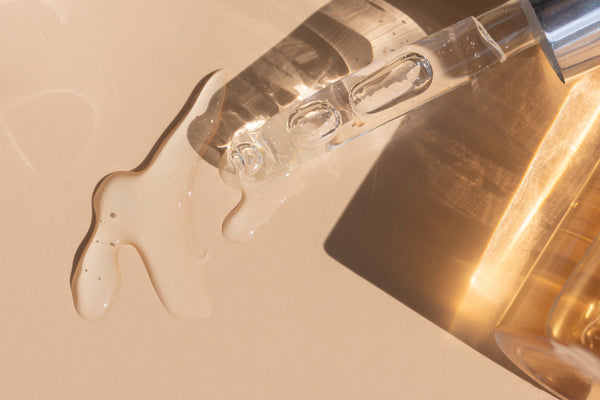
The Best Skincare Ingredients for Anti-Aging
Retinol
Retinols, hailed as the ultimate anti-aging solution, are vitamin A-derived compounds. They operate at a deep level, facilitating collagen remodeling, while also enhancing skin cell turnover and addressing discoloration. The term "retinoid" encompasses many formulations, such as over-the-counter retinosl and prescription-strength options like tretinoin. Retinols work by stimulating cell turnover and collagen production in the skin's layers. Despite past worries about retinol's harshness, its effectiveness depends on the type of formulation it's in. It's recommended to choose a retinol product with added antioxidants and soothing ingredients to reinforce the skin's moisture barrier during the treatment process.
Our Top Retinol Pick: Alastin Renewal Retinol
Ferulic Acid
Ferulic acid is a natural compound found in plant cells. Its antioxidant properties may help fight the effects of free radical damage on the skin. Ferulic acid works best when combined with other antioxidants, such as Vitamins A, C, and E. It neutralizes free radicals generated by factors like UV rays and blue light damage, preventing them from depleting our collagen production. This dual action helps preserve existing collagen levels and promotes a more youthful appearance.
Our Top Ferulic Acid Pick: SkinCeuticals C E Ferulic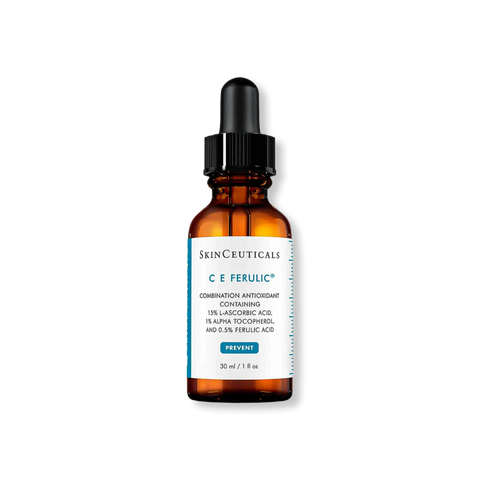
Vitamin C
Vitamin C stands as a powerful antioxidant, demonstrating effective synergy with sunscreen to shield the skin against UV and free-radical damage. According to dermatologists, it plays a role in collagen building and aids superficial skin cells in managing hyperpigmentation. Collagen, essential for the skin's firmness and elasticity, diminishes with age. Integrating a daily vitamin C serum into your routine not only safeguards against UV-induced collagen loss but also contributes to stimulating collagen production.
Our Top Vitamin C Pick: Yon-Ka Vitamin C Serum C-20
Peptides
Peptides are the building blocks of protein. They play a crucial role in signaling for collagen synthesis and, depending on the specific peptide, can also enhance skin moisturization. Despite receiving less attention than SPF or retinol, peptides have shown significant effectiveness in anti-aging. A 2019 study involving 22 women over 40 demonstrated that the topical application of peptides led to significant improvements in skin wrinkles within a short span of two weeks.
Our Top Peptide Pick: Jan Marini Age Intervention Peptide Extreme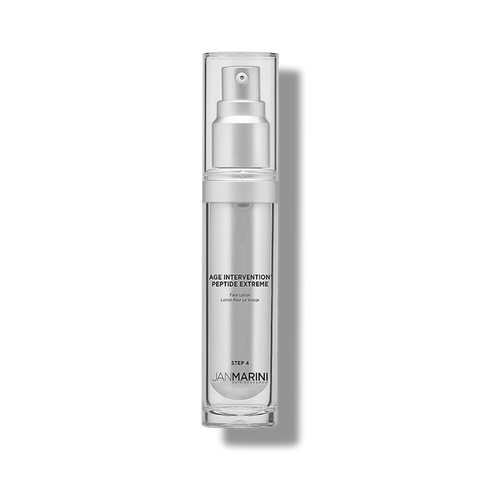
Epidermal Growth Factor
These growth factors are substantial proteins sourced from human, animal, or plant cells that stimulate the production of structural proteins such as collagen and elastin. Additionally, they play a crucial role in tissue repair following injuries, making them particularly beneficial post in-office procedures like microneedling and laser treatments.
Our Top EGF Pick: Biopelle Tensage Stem Cell Cream
Hyaluronic Acid
Research indicates that skin aging is closely linked to the loss of skin moisture. Hyaluronic acid's ability to attract and retain water, effectively rejuvenating areas prone to dryness, sunken appearance, or 'crepe' texture, is pivotal to addressing skin dehydration. A study revealed that anti-wrinkle creams enriched with hyaluronic acid led to a notable reduction (10 to 20 percent) in the depth of wrinkles over a three-month period, and improved skin tightness within the range of 13 to 30 percent.
Our Top Hyaluronic Acid Pick: SkinMedica HA5 Rejuvenating Hydrator
MEP Technology
A recent skincare breakthrough, MEP Technology introduces a transformative approach to anti-aging. MEP aims to stimulate the estrogen receptor pathway in the skin without hormonal influence, basically restoring plumpness, firmness, and moisture to estrogen-deficient skin. A 2019 study highlighted MEP's effectiveness in enhancing sun damage, skin texture, and hydration. The study observed significant improvements in younger patients within approximately 8 weeks, while older patients experienced notable improvements by week 20, suggesting MEP's potential in reactivating dormant estrogen receptors.




